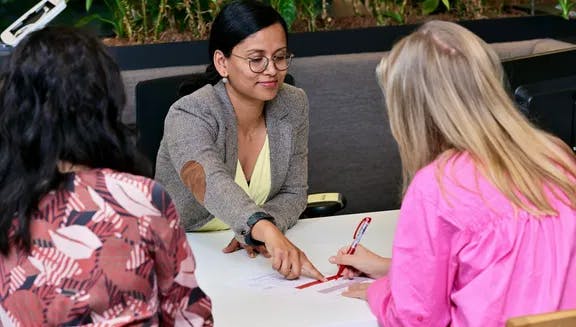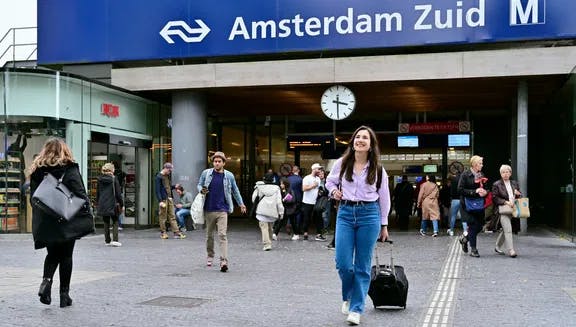
Getting a visa for the Netherlands
Do you need a visa to stay in the Netherlands?
Citizens of EU/EEA member states or Switzerland are exempt from the visa requirement. For some non-EU/EEA nationals there is no visa requirement either. Find out if you need a visa for the Netherlands.
Short-term stays (under three months)
Schengen area visa
A Schengen visa grants its holder the right to stay and travel in the Schengen area for up to three months within a six-month period. The visas are valid for a period of one, three or five years, depending on the applicant’s visa and travel history. If you have a Schengen visa for the Netherlands, you will also be permitted to travel in the other countries belonging to the Schengen area. There is a handy short-stay calculator that can be used to calculate the length of your permitted stay.
How to apply for a Schengen visa
Non-EU/EEA citizens need to apply for Schengen visas at the Dutch embassy or consulate in their country of origin. The visa is a sticker issued by the embassy or consulate that is pasted into your passport.
When applying, you must supply various documents, including documents that demonstrate the purpose of your journey. This could include a letter of invitation from a Dutch business (in the case of a business trip) or a hotel booking. In certain situations, you may be required to provide a sworn translation of certain documents.
If you are travelling to visit family or friends, they need to act as your sponsor. In order to so, they need to complete and submit a form called ‘proof of sponsorship and/or private accommodation’ (bewijs van garantstelling en/of particuliere logiesverstrekking) and a copy of their passport or European identity card. A sponsor may act as a host or a guarantor.
Processing time and costs
The processing of visa applications usually takes up to 15 days. This can be extended to 45 days, for instance if additional inquiries are necessary. If you need to visit the Netherlands urgently (for instance to attend a family funeral or visit a family member with a terminal illness), you can apply for an emergency visa.
There is a non-refundable administration fee when applying for a visa, payable at the embassy or consulate when applying. Keep in mind that conditions for granting the visa depend on the purpose of the stay.
Staying longer than three months
Stays above three months cannot be classed as a tourist stay. Those wanting to stay for a period longer than three months must apply for a provisional residence permit (machtiging tot voorlopig verblijf, MVV) to enter the Netherlands, and they must also apply for a residence permit (verblijfsvergunning, VVR).
Provisional residence permit (MVV)
The MVV (provisional residence permit) is an entry visa for internationals intending to remain in the Netherlands for longer than 90 days. It is required in order to travel to the Netherlands to pick up your residence permit at the IND. The MVV is often part of the application process for the residence permit. Applications for the MVV and a residence permit must be made simultaneously at a Dutch embassy or consulate.
Depending on your nationality and several other factors, you may not require an MVV – check the full list of MVV exemptions. If you do not require an MVV but you do require a residence permit, you may collect your permit directly from an IND Desk upon arrival in the Netherlands, once the IND has notified you of their decision.
Dutch residence permit
Dutch residence permits can be granted for a variety of circumstances. Most types of residence permits require sponsorship – if you are seeking to obtain a residence permit as an employee or highly skilled migrant, for example, the sponsor would be your employer. Applications for a residence permit based on family circumstances require a relative or partner to act as a sponsor. For residence permits for the purposes of seeking education, your educational institution would be the sponsor. Applications including all additional documents required from your sponsor can be submitted either at the Dutch embassy or consulate in your country of residence or at the IND through your Netherlands-based sponsor.
How to apply for a residence permit and MVV
Depending on the type of residence permit you require, the set of required documents can change, requiring additional information from sponsors, relatives or partners. In certain cases, a civic integration exam is also required.
There are separate procedures in place created to support internationals who want to accompany their partners or families. Make sure to explore your options, as in some cases, a family application has to be submitted alongside the partner’s individual application.
There are usually costs associated with the application process, which can vary depending on the type of document you require. The IND decision period for residence permit applications is 90 days. This decision period can be extended for various reasons, such as missing documents. If more information is required, the IND will contact the applicant directly.
Refugees from Ukraine
Refugees from Ukraine do not require a visa and fall under the ‘Temporary Regulations for Ukraine’ scheme. This means they can live and work in the Netherlands without a work permit (tewerkstellingsvergunning, TWV). This exemption applies to all work as an employee and, to qualify, an employment contract with an employer is needed.
Learn more about moving to and living in the Amsterdam Area.
Related articles

Registering in the Amsterdam Area

Document authentication

Residence permit

Births, deaths and marriages

Extracts & copies of certificates

Orientation year permits for graduates and researchers

Apply for Dutch citizenship

How to protect your personal details and BSN: defending against spoofing and scams

Civic integration
